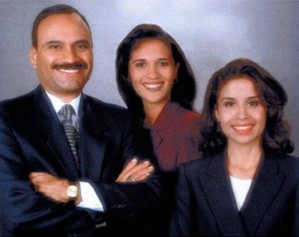Course & Scope of Employment
Workplace Injuries: What is Course and Scope of Employment?
Whether or not an employee’s injury was sustained during the course and scope of their employment is an oft contested and frequently litigated issue. For example, an employee becomes injured during his lunch break when he is hit by a car crossing the street; an employee is injured at a company-sponsored softball game because the ball hits her in the leg; or an employee gets hurt while picking up her paycheck on her day off. Did any of these injuries occur in the course or scope of employment?
These are extreme examples, but in general, and in Texas, for a workplace injury claim to be covered, an employee must be show that the injury occurred while the worker was acting in the course and scope of his or her employment. Course and scope of employment is defined in Texas as “an activity of any kind or character that has to do with and originates in the work, business, trade, or profession of the employer and that is performed by an employee while engaged in or about the furtherance of the affairs or business of the employer.” The injury need not occur on the premises of the employer for there to be coverage.
Texas law recognizes the “coming and going rule” and the “dual purpose doctrine”, both of which can result in employers successfully avoiding coverage for workers’ compensation claims. The coming and going rule means that in most cases, employees cannot seek coverage if an injury is sustained on their way into the workplace or on the way home. This rule applies to employees who work in a fixed location; there are more complicated rules governing injuries to employees who travel at the behest of their employer. The dual purpose doctrine means that with limited exception, an employee cannot seek workers’ compensation coverage if the injury occurs while doing personal errands or business, even if doing so at the same time as work activities.
Potential Lawsuits
If you are forced into filing a lawsuit against your employer regarding your injury because they argue that your injury did not occur within the course and scope of your employment, then it becomes your burden to prove that it did. There are many defenses your employer may raise to argue that your injury occurred outside the course and scope of your employment. In addition to the exceptions listed above, there are many others, including arguing that you were intoxicated or that you were engaged in horseplay, or even that although your injury occurred at work, it was a result of personal animosity from another and therefore not a workers’ compensation claim. All of these defenses may result in the employer successfully denying coverage for your claims.
These are just a few of the multitude of defenses or exceptions that can prevent you from establishing cause and scope in a legal action. As you can imagine, this is a hotly contested area of the law. It is a good idea to consult a San Antonio work injury lawyer at the Law Offices of Ronald A. Ramos, P.C. if you think your employer may contest your injury by arguing you were not acting within the course or scope of employment when you were injured.
Contact Us Today

